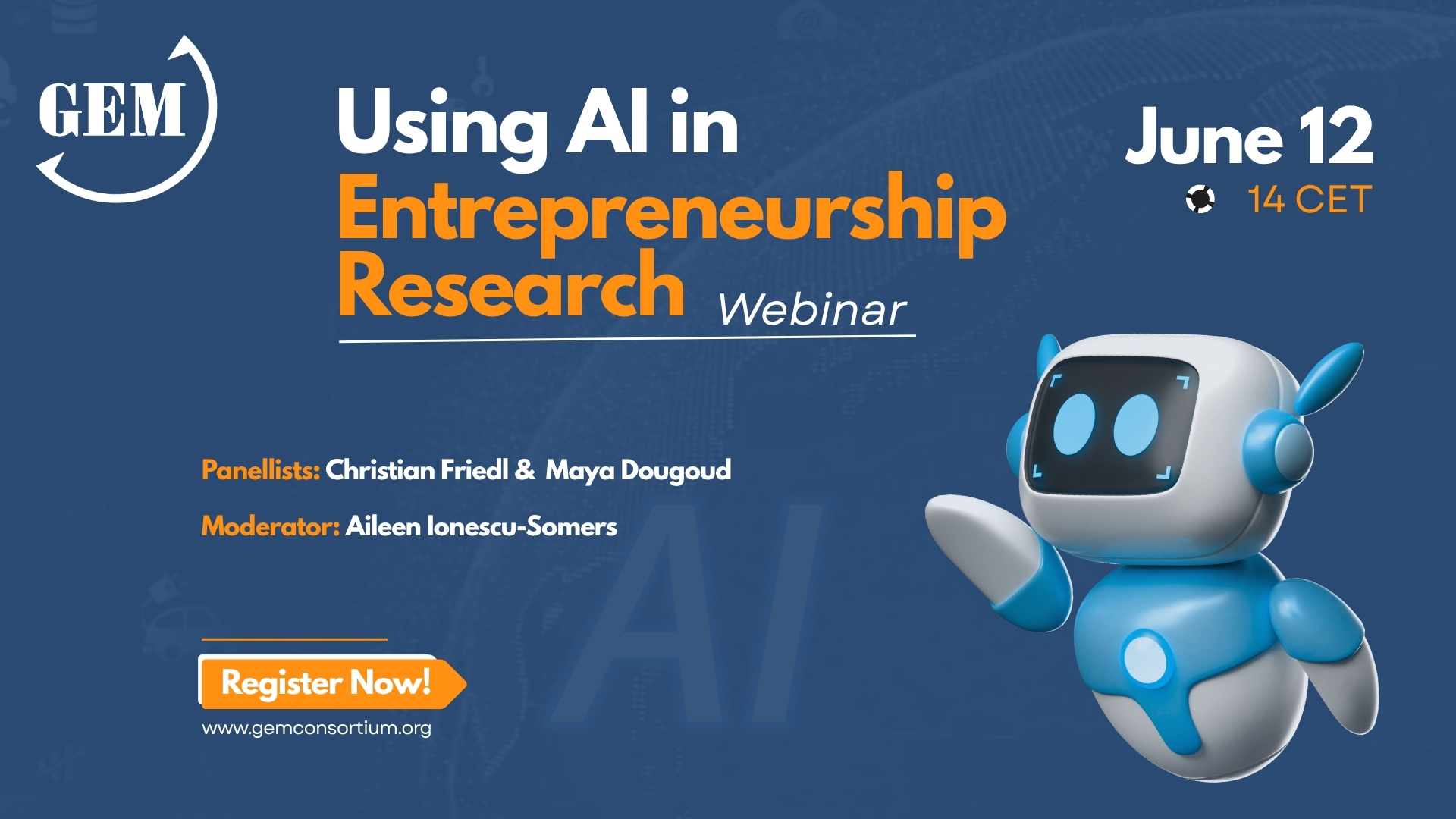In what areas of your research work are you currently using AI?
This was the opening question posed to attendees during our 12 June webinar on using AI to conduct entrepreneurship research (access the recording).
Christian Friedl, GEM Austria Team Leader and one of the panellists, noted: “I see AI not as a replacement for researchers, but as a powerful co-pilot that helps us work faster, structure better, and ask smarter questions.”
Maya Dougoud, GEM Switzerland Team Leader and fellow panellist, added: “AI helps us get started more quickly, but we still need to bring the human touch – our insight, ethics, and judgement – to make the research meaningful.”
Both Friedl and Dougoud are GEM / GERA board members.
The webinar, moderated by GEM Executive Director Aileen Ionescu-Somers, explored practical applications of AI in entrepreneurship research, including opportunities, challenges, and emerging practices within the GEM community. With the support of AI, below is a short summary of the main topics discussed.
Current AI use cases
Speakers shared how they are currently using AI tools to assist with reviews, writing, hypothesis development, synthesising large volumes of data, and creating promotional content. Tools mentioned included ChatGPT, Notebook LM, Nottaai, PowerBI, Deepseek and Gamma.
Collaborative applications
Examples were shared of how AI is supporting cross-border collaboration in research teams, enabling quicker alignment on writing and report structuring.
Opportunities and risks
Speakers identified several promising opportunities for using AI in entrepreneurship research. These include enhancing efficiency in data analysis, reducing the administrative burden in research workflows, and creating new formats for sharing and publishing results.
However, they also highlighted important risks and cautions. These include concerns about over-reliance on AI for critical thinking, ethical considerations such as bias in AI-generated outputs, data privacy concerns, and the necessity of maintaining human oversight and methodological transparency.
AI is already helping researchers work faster and more efficiently, but it must be applied thoughtfully. Continued dialogue and knowledge sharing will be essential as tools and use cases continue to evolve.
Access the recording and presentation slides.

